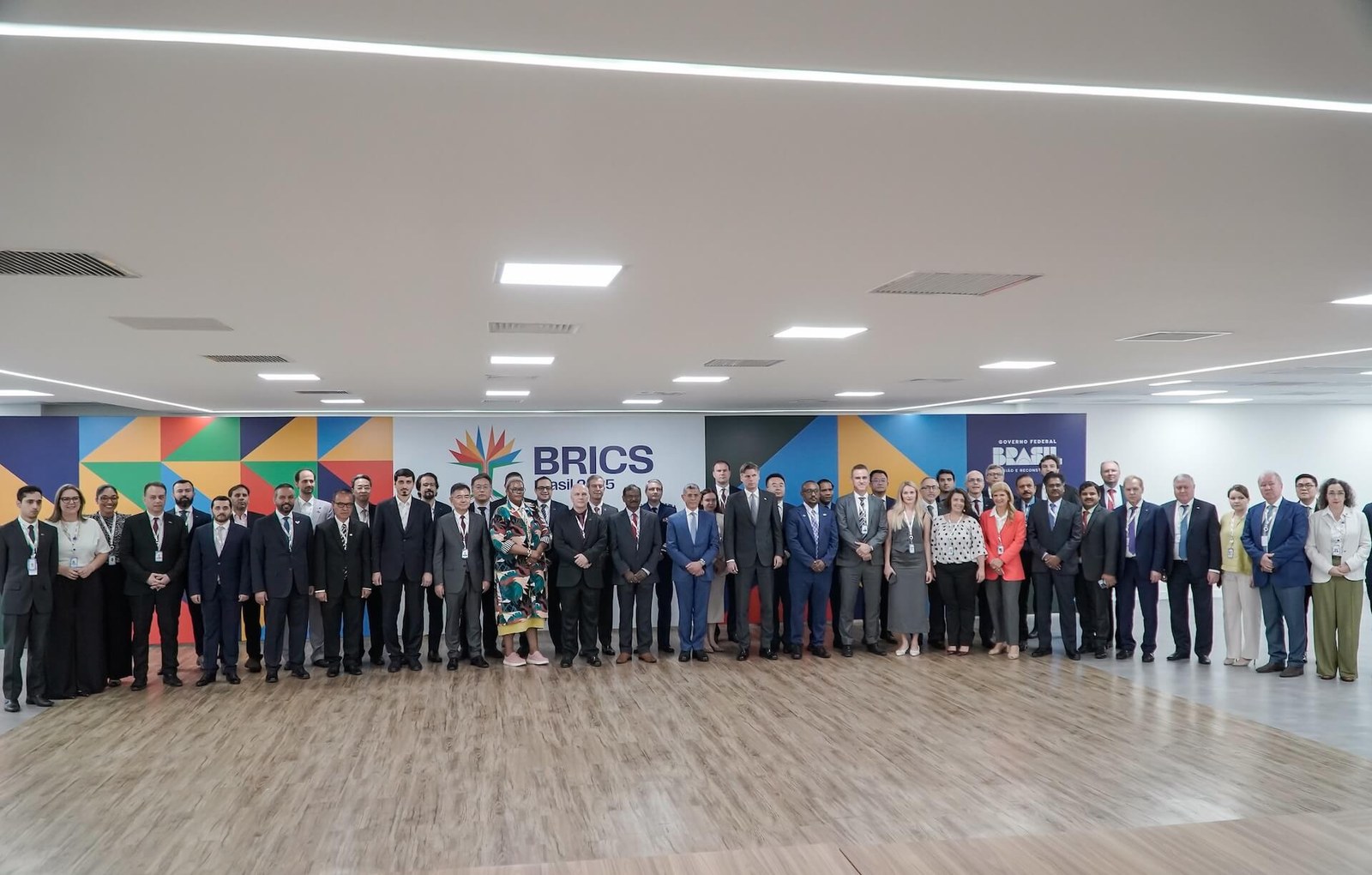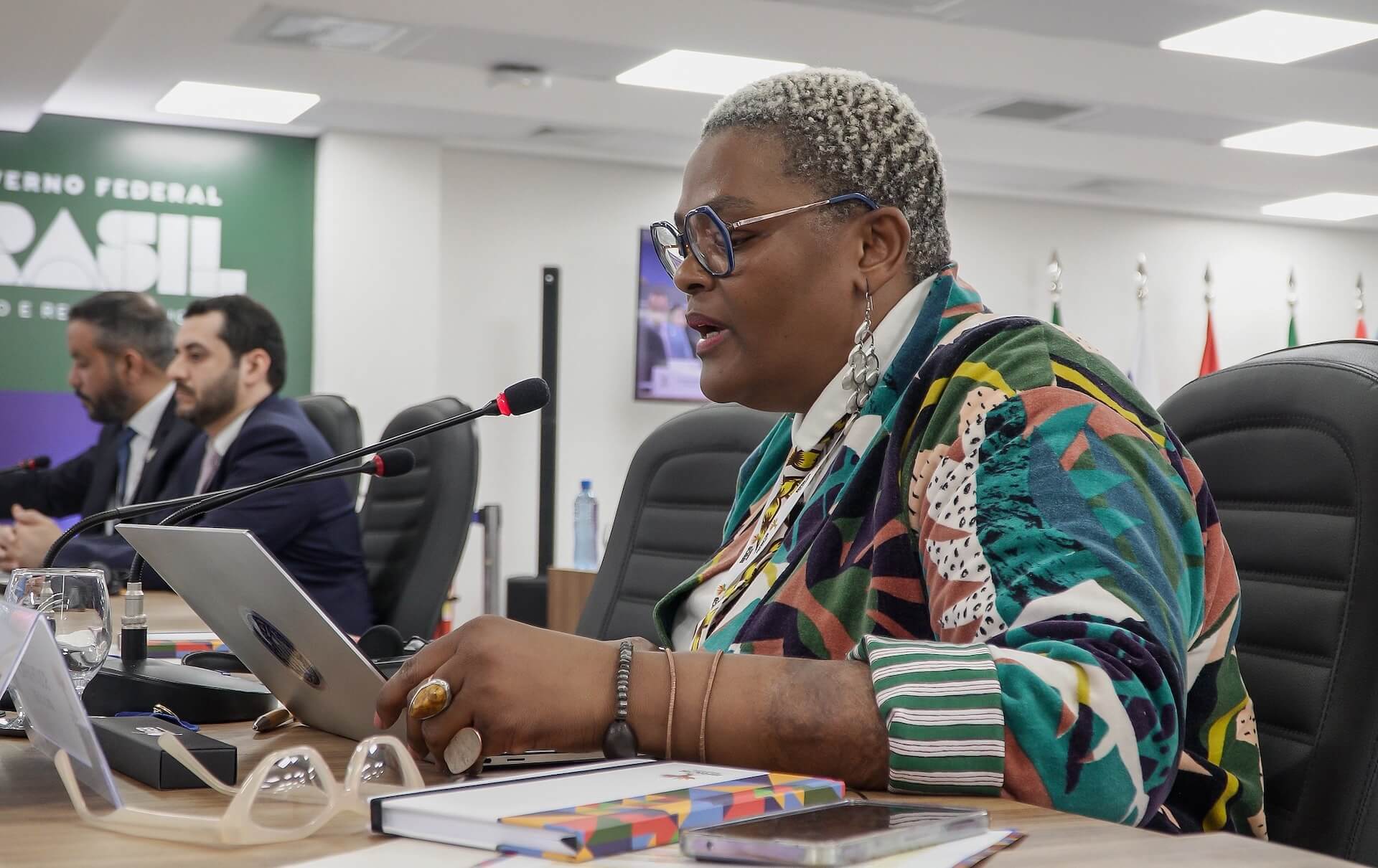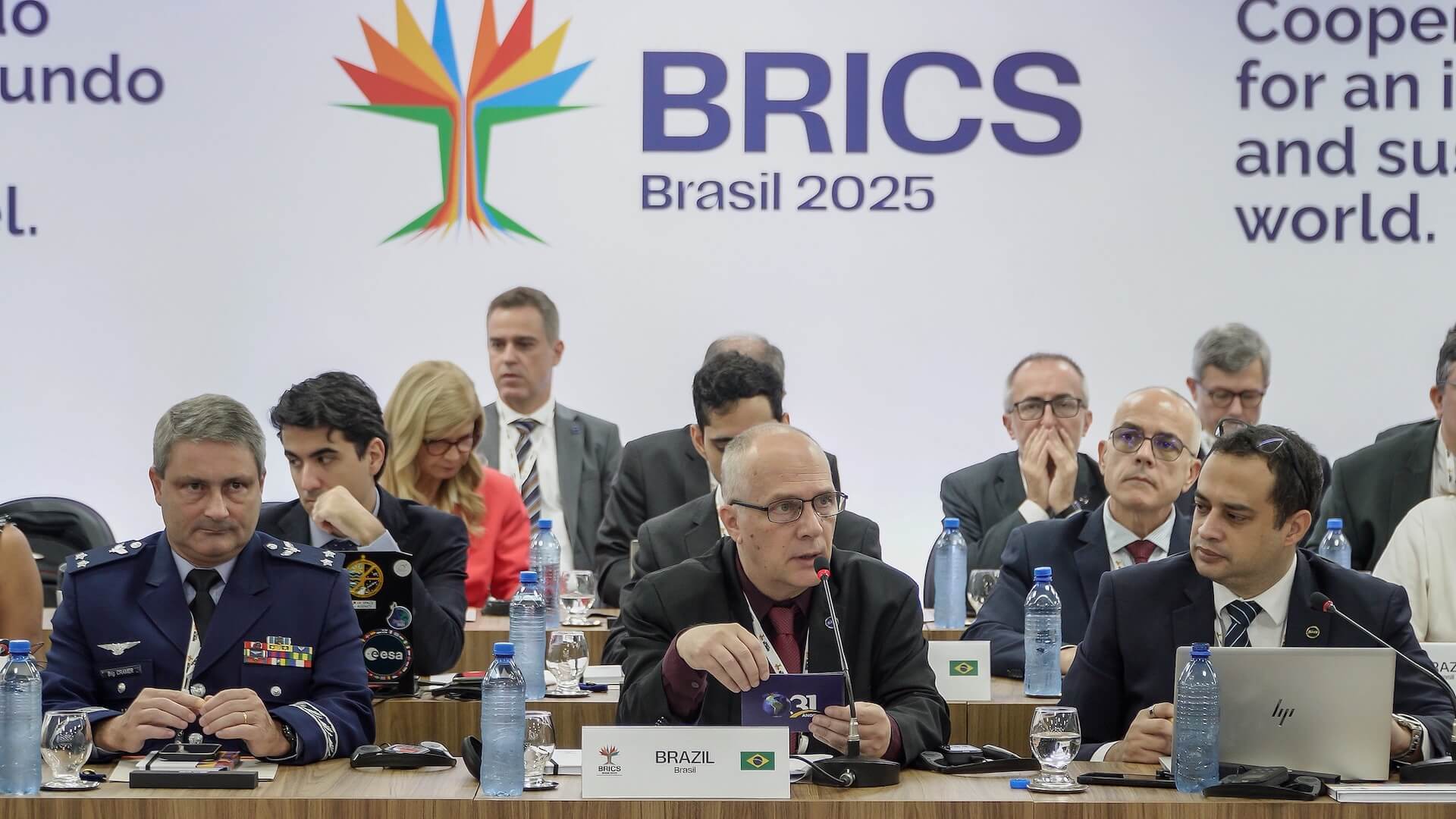BRICS expands cooperation in the space sector to reduce technological asymmetries among member countries
Meeting in Brasilia discusses joint actions to strengthen the sustainable use of space and expand exchange of data and technology.

By Maiva D´Auria | maiva.dauria@brics.br
Leaders of the space agencies of the BRICS countries met this week in Brasília to strengthen international cooperation in three main topics: reducing technological asymmetries among member countries; promoting sustainability in the use of space; and advancing the BRICS Virtual Constellation of Remote Sensing Satellites.
At the opening of the meeting, Brasil’s Minister of Science, Technology and Innovation Luciana Santos highlighted the strategic nature of the cooperation among bloc countries. “We are dealing with extremely strategic actions that are an important integration factor. The agencies of the countries that make up BRICS are gathering to define how they can strengthen their cooperation — especially in the areas of space and Earth observation,” she stated.
Santos also emphasized that space has been gaining a central role in the development of solutions for sensitive fields such as health, agriculture, and meteorology. “We need to master technologies that allow us to create effective alternatives to the challenges we face, especially in the face of global warming,” she added.

Asymmetries
According to the president of the Brazilian Space Agency (Agência Espacial Brasileira/AEB) Marco Antonio Chamon, the exchange of information and data among countries is essential to balance the technical capacities of space agencies. “Not all BRICS countries possess the same level of infrastructure, experience or resources. One of our main goals, therefore, is to reduce technological asymmetry through technical cooperation and training,” he said.
As a concrete action, Chamon mentioned the proposal to create initiatives aimed at training personnel; exchanging students and researchers; and sharing teaching and research structures. “Each public agency has its own capacity, and the idea is that these can be made available to other countries. Brasil, for example, has a lot to offer in this field.”
To Asanda Ntisana, specialist in Institutional and Stakeholder Relations at SANSA (South African Space Agency), the exchange of experiences among BRICS countries strengthens the visibility of the group's space initiatives and ensures aligned communication.
“We believe this mechanism will ensure consistency in our messaging and ultimately result in a cohesive and unified voice for the partnership, especially on global platforms,” Ntisana said.
She also noted that, in South Africa, the agency has been investing in training professionals through scholarships, internships, outreach programs, research support and partnerships with academic institutions, all towards developing a qualified body of space specialists in the country.
Sustainability in space
The second central point of the discussions was the preservation of the orbital environment. According to Chamon, the group understands this issue in two main ways. The first concerns space debris. “More and more satellites have been launched and are now inactive, becoming uncontrolled in space. This is a problem — it has even caused difficulties for Brasil itself. We have had our satellites hit by very small pieces of other space vehicles.” Although the damage did not render the equipment unfeasible, the phenomenon has gained relevance in technical discussions.
The other concern is orbital traffic. “In the same way that there is regulation for air traffic, we want to move and seek regulation for space,” explained Chamon. To him, the challenge is to balance free use with equitable access. “From the point of view of using space capabilities, I would like less regulation — but, from the point of view of fair use by all countries, we need to think about regulations. Obviously this is not a job for a single management.”

Satellite data sharing
The third topic discussed during the two-day meeting was the BRICS Virtual Constellation of Remote Sensing Satellites — a space data sharing mechanism made up of satellites that are already in orbit. In 2021, the five founding countries of the group — Brasil, Russia, India, China and South Africa — signed an agreement to exchange data in emergencies and on demand. The idea now is to extend this agreement to the countries that have joined the bloc more recently.
During the meeting, Dmitry Bakanov, director of Roscosmos — Russia’s State Corporation for Space Activities — reinforced the importance of cooperation. “Russia is a leader in space technologies, and we can share our experience and developments so that other countries can also benefit. In the case of Earth remote sensing clusters, for example, we could provide satellite images to countries in situations of technological disasters, as happened during the earthquake in India.”
He also stressed that data exchange is a two-way street. “We also received — as was the case with China — images that helped combat the fuel oil spill in the Black Sea, when there was a spill.”
COP30
The representatives proposed a joint action involving all BRICS countries that have satellites. The initiative consists of sharing satellite images of the city of Belém, capital of Pará, in Brasil, where COP30 will be held in November of this year.
The proposal is symbolic: it is a showcase of the technological capabilities of BRICS countries, demonstrating how the members of the group can act in a coordinated and integrated manner, presenting joint initiatives focused on the Amazon region.
BRICS Space Council
On the occasion, Brasil also resumed the proposal to create a BRICS Space Council — an idea initially presented last year during Russia's presidency.
According to the president of the Brazilian Space Agency (Agência Espacial Brasileira/AEB), the creation of the Council would allow for a more effective organization of the various projects underway among the countries, such as image sharing, training of specialists and the exchange of technical information. “The idea is to establish a more structured governance mechanism for the group's space initiatives, considering that BRICS still operates informally, without permanent decision-making bodies, as is the case in more consolidated international organizations,” Chamon explained.
The proposal was well received by some countries, while others considered that the proliferation of formal structures must be avoided. As a follow-up, a task force was defined to develop the proposal during Brasil’s presidency of BRICS towards consolidating a more robust version by the end of the term and submitting it to a vote, possibly during the meeting in India in 2027.